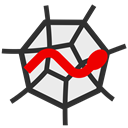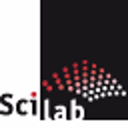Top Maple Alternatives: Unlocking New Possibilities in Computational Math
Maple is a well-established commercial computer algebra system, renowned for its ability to handle mathematics using traditional notation, support arbitrary precision numeric computations, symbolic computation, and advanced visualization. It even offers a Pascal-like programming language and interfaces with other popular languages and Excel. However, for various reasons—be it cost, specific features, or a desire for open-source solutions—users often seek effective Maple alternatives. This article delves into the best alternatives available, providing a comprehensive guide to help you find the perfect fit for your computational needs.
Best Maple Alternatives
Whether you're looking for free, open-source options, or powerful commercial systems with similar capabilities, there's a strong alternative to Maple out there. Here's a curated list to help you explore:

Wolfram Alpha
Wolfram Alpha is a unique “Computational Knowledge Engine” that stands out from traditional search engines by directly computing answers to factual queries. As a freemium web-based platform also available on Android, iPhone, Windows Phone, iPad, and Kindle Fire, it offers robust features like a built-in search engine, equation solving, and a math-solver, making it a powerful alternative for quick computations and factual inquiries that Maple users might appreciate.

Sage
Sage is an excellent free and open-source mathematics software system, licensed under the GPL. Available on Mac, Windows, Linux, and Web, it combines the power of numerous existing open-source packages into a cohesive Python-based environment. Its strong symbolic computation capabilities make it a formidable open-source Maple alternative for a wide range of mathematical tasks.

R (programming language)
R is a free and open-source software environment specifically designed for statistical computing and graphics. As a GNU project, it's highly similar to the S language and environment, offering features like automatic data loading and data mining. Available on Mac, Windows, Linux, and BSD, R is a strong Maple alternative for users focused on statistical analysis and data visualization.

Mathematica
Mathematica is a definitive commercial technical computing system that rivals Maple in its breadth and depth. Available on Mac, Windows, Linux, and Web, it spans machine learning, neural networks, data science, and extensive visualizations. Its features include symbolic computation, calculus solving, constructive geometry, equation solving, graphing calculator, algebra, and graphical components, making it a very comprehensive Maple alternative.

Spyder
Spyder, formerly Pydee, is a free and open-source Python development environment. Available on Mac, Windows, and Linux, it provides MATLAB-like features in a simple and lightweight package. While not a direct symbolic computation system like Maple, its focus on Python and its robust IDE features make it a valuable alternative for users who prefer a programming-centric approach to numerical and scientific computing.

Maxima
Maxima is a powerful free and open-source system for the manipulation of symbolic and numerical expressions. Available on Mac, Windows, and Linux, it excels in differentiation, integration, Taylor series, Laplace transforms, and ordinary differential equations. Its strong symbolic computation and algebra features make it a direct and highly capable open-source Maple alternative.

wxMaxima
wxMaxima is a user-friendly, document-based interface for the Maxima computer algebra system. Free and open-source, it runs natively on Windows, X11, and Mac OS X, leveraging wxWidgets for its graphical interface. By providing an intuitive front-end to Maxima's powerful algebra capabilities, wxMaxima makes symbolic computation more accessible, serving as an excellent open-source Maple alternative.

Julia
Julia is a high-level, high-performance dynamic programming language tailored for technical computing. Free and open-source, and available on Mac, Windows, and Linux, its syntax is familiar to users of other technical computing languages. Key features include automatic JIT compilation on code change, a powerful compiler, and strong support for parallel computing, making it a compelling alternative for users who prioritize speed and advanced programming in their computational workflows, much like Maple's programmatic capabilities.

Xcos
Xcos is a graphical editor designed for creating and simulating hybrid dynamical systems models. As a free and open-source tool available on Mac, Windows, and Linux, it allows users to design, load, save, compile, and simulate models using its intuitive Palettes Browser. While more focused on simulation than broad symbolic computation, Xcos offers a strong alternative for users whose Maple workflows involve system modeling and simulation.

fxSolver
fxSolver is a free online math solver, equation editor, and database, serving as a graphing calculator and problem helper for science and engineering. As a web-based platform, it offers features such as a formula builder, equation editor, built-in editor, calculators, database, editable calculations, graphs, and shared links. For users needing a convenient, online alternative for solving equations and visualizing data without a full desktop installation, fxSolver is a great choice.
The world of computational mathematics software is rich and diverse, offering many powerful alternatives to Maple. Whether your priority is symbolic computation, statistical analysis, programming flexibility, or a free and open-source solution, there's likely a perfect fit for your specific needs. We encourage you to explore these options and discover the best tool to enhance your mathematical and scientific endeavors.